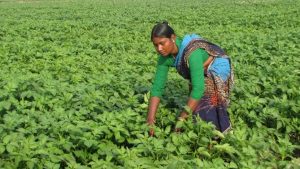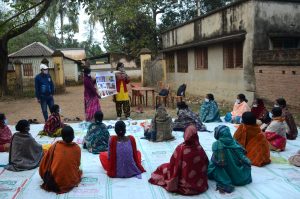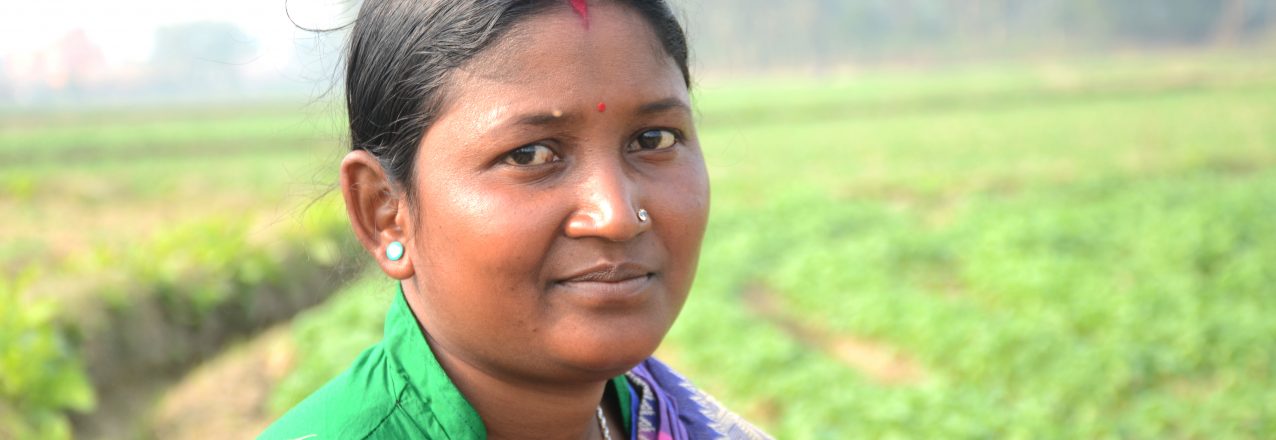A USAID-PepsiCo partnership is demonstrating how governments can leverage the private sector to empower women while advancing climate change goals
Arati Besra had been planting rice and raising small animals for her family’s subsistence since she got married at the age of 15. She had never thought about farming for profit until she heard of a partnership between the U.S. Agency for International Development (USAID) and PepsiCo, Inc., the U.S.-based multinational food, snack, and beverage corporation, which empowers women in PepsiCo’s potato supply chain in West Bengal.

Arati was eager to take part in the partnership’s in-depth potato farming training program, where she learned about land preparation, seed treatment, soil health, pest and disease control, harvest, and record-keeping, expanding her skills as a farmer. Empowered with new knowledge and skills, she led the 12 women in the Self-Help Group she founded in 2005 to produce potatoes independently and enter the PepsiCo potato supply chain. With assistance from USAID and PepsiCo aggregators to identify and negotiate land available for leasing, the women leased a plot of land as a group and managed the farming operations throughout the growing season. Following the harvest, the women reported above-average yields for the area.
This innovative partnership between USAID and PepsiCo is demonstrating that women’s empowerment can increase the potato supplier base for PepsiCo, improve yields and profitability for rural farmers and PepsiCo, and promote the adoption of sustainable and regenerative farming practices that advance USAID’s and PepsiCo’s global climate change commitments. Working in partnership with women, USAID and PepsiCo are learning from women in the community about the constraints and opportunities for their increased participation in the PepsiCo potato supply chain.
“By empowering women, we are empowering our supply chains to do better every day. Not only with productivity, but with environmental performance and adaptation to the challenges associated with climate change,” said Margaret Henry, PepsiCo’s Director of Sustainable Agriculture.
Over the past two years, USAID and PepsiCo have provided gender awareness training to all PepsiCo staff in West Bengal and agricultural extension services to over 1,000 women potato farmers. Training on sustainable farming practices like composting, reducing crop residue burning, soil testing, responsible pest control, and using drip irrigation contributes to climate change mitigation and adaptation efforts by maintaining soil carbon levels, reducing air pollution and CO2 emissions, and reducing pesticide runoff and water contamination. In addition, the partnership is increasing women’s access to productive resources, information, and income diversification, reducing women’s vulnerability and increasing household resilience.

Participating in extension training and producing potatoes independently for the first time increased the women’s ability to become change-makers in their communities and champions for women’s empowerment and sustainable farming. The partnership is also working with male champions such as aggregators and sub-vendors in the supply chain to understand and value women empowerment. These male champions have increased their outreach to women farmers and played a key role in convincing other men in the communities to support women’s efforts.
After attending training, leading her women’s land leasing group, and overcoming skepticism from men in her family and community, Arati has been selected by the partnership to serve as a part-time Community Agronomist. In the role, she provides support and advice to PepsiCo farmers in her village and has developed innovative farm waste disposal mechanisms with locally available resources.
Arati now sees herself as a successful farmer and local leader. “I was able to prove that I can do this. The knowledge gained through training has helped me guide the farmers. Now I have acceptance and respect from other women and male farmers too. I am learning many new things and I am trying to apply those lessons at a personal level and also reach out to other women like me.”


